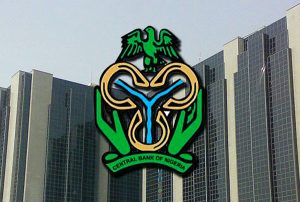The Central Bank of Nigeria (CBN) has increased the weekly supply of Bureau De Change (BDC) operators from licensed banks from 30,000 dollars to 50,000 dollars.
Mr Kennedy Uzoka, Group Managing Director (GMD) United Bank for Africa (UBA), disclosed this on Tuesday in Abuja while addressing a media conference on the outcome of the 328th Bankers’ Committee meeting.
He said that the increase was necessary based on the present prevailing circumstances where the available Forex in the market was not sufficient to meet the needs of Nigerians.
The News Agency of Nigeria (NAN) reports that the CBN had recently issued a circular directing that banks that have been approved as International Money Transfers Operators (IMTSO) should sell foreign currency to the tune of 30, 000 dollars per week to licensed BDC operators.
Uzoka said that before the increase was made, there were lots of consultations by the CBN and the Bankers’ Committee based on the feedback received from the market which necessitated the increase.
“The issue of making Forex available to Nigerians has been very topical and CBN has been working very hard to address this.
“We believe that this development will ensure that there is more cash available to the BDCs and increase the supply and this will help to drive down the price.
“The reason for this decision is to ensure that people get enough for school fees, student allowance and personal travel allowance and any BDC that tries to circumvent this gesture will be severely punished.’’
He, however, noted that the adjustment in the policy did not mean that the policy was reversed but that it was an improvement on what was obtainable.
The CBN Director for Banking Operations, Mrs Tokunbo Martins, also said that the meeting reviewed ways of improving the nation’s economy through lending.
She said that the economy could be supported through low interest lending or single digit lending.
She also said that a special intervention fund to support some agricultural and manufacturing projects would be released soon.
She said that the fund was a fraction of the deposit of the banks that was taken from them some time ago but had not been disbursed for any purpose.
“It has been with the CBN for some time and has not been disbursed but there was some discussion about it and the agreement is that those funds will be disbursed to support primary agricultural projects.
“It is also for core manufacturing projects that support import substitution, projects that will help preserve foreign exchange such that whatever we were importing before can be manufactured here.
“It is only for those kind of projects and once those funds are released there will be some ease in the economy and more liquidity and important projects will be able to get financing at a more lower rate.’’
According to her, disbursement will commence as soon as projects that meet the criteria for the funds are identified.
The Executive Director, Jaiz Bank, Mr Usman Hassan, said that there would be a month long sensitisation programme in October to educate Nigerians about the need for all to be included in the financial system.
He said that this would reduce the level of those that were excluded and raise the level of financial inclusion from 60 per cent to 80 per cent.
He said that the CBN and the Bankers’ Committee were worried about the number of Nigerians that were not getting financial services.
Mr Peter Amangbo, Chief Executive Officer of Zenith Bank, said the committee discussed the world savings day which would come up on Oct. 31.
He said savings were very important ways to grow an economy.
“We have decided that all the banks will go round and cover all the local government areas to sensitise people to the need to save massively.
“This is because the more we have savers in the banking industry, the more the banks can intermediate effectively and the more we can grow the pool of funds available for lending and thereby grow the economy.’’
(NAN)














